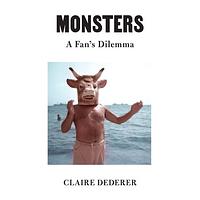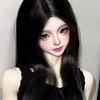Take a photo of a barcode or cover
informative
reflective
medium-paced
To start, Claire Dederer is a very engaging writer and I enjoyed the writing in this book. It did leave me with many thoughts. There are some parts I agreed with (some vehemently), there are parts I take issue with (some vehemently) and there are parts I find it hard to connect with (I have never really loved Woody's Allen for example). I think she has some implied false equivalences - I can't in any world see that Joni Mitchell giving up her baby is in any way comparable to Roman Polanski raping a child - but to give Dederer credit I don't think she really means that they are the same...the book structure just implies it. I guess my cultural theorist side wanted this to be more coherent in terms of examination of the monstrous but my literary appreciation side can see that that isn't really what she is setting out to do. I think the most interesting insight is that the idea that we need to police our own consumption is an individualising response to a what is a structural problem (like recycling etc) - when I think of most of the terrible men of recent years, perhaps the most stunning thing is how much the system has protected and enabled them because they make money. She probably could have drawn this out more (well, would have if this was a culture theory text) but that wasn't what she was trying to do. In the end, this is a deeply personal book which she emphasises in her discussion of the use of "I" versus "we". Anyway, another reminder that all our faves are problematic and that it is a struggle ethically to consider how we respond and what the levels of badness are, even if perhaps the best response, as ever, is to overthrow capitalism.
challenging
informative
reflective
medium-paced
informative
reflective
the book kind of loses the plot about 3/4 way through (when she started ruminating on abandoning mothers). i know this was originally an essay which makes me think there is a lot of fluff to pad it out to be a full book as it read quite rambly at times. maybe i went into this expecting a different book as it also read a lot more like a memoir and included a lot of other artists’ autobiographies that i found irrelevant to the subject matter.
i started this book yearning to be enlightened but the final answer or lack thereof was ultimately reassuring? and sort of made me sigh of relief from the breathe i’ve been holding. ig there really is no correct answer.
challenging
dark
reflective
medium-paced
I started off hating this book, kept going until it levelled out at about three stars, then towards the end when the attention redirected itself towards women, hit a pretty solid low for me. Felt like it conflated a lot of things so different they were basically on separate planets into one scale. Didn't land for me.
challenging
dark
emotional
hopeful
reflective
sad
medium-paced
Possibly because I'm from Seattle and of a similar age, this book really connected with me. It's part discussion of horrible people, part soul-searching at how we/humans consume media made by horrible people, and partly just a look at being an artist/creator in the world. It's very good, probably 4.5 stars with my locality bonus.
3.25/5 actually
this is a decent book, however i would argue - along some other reviews - that it is advertised wrongly even by the author herself. she speaks in great lengths of the "i" turning into a "we" - it says so on the cover, too. however this isn't a "we" book, this is an "i" ("her") discovery. she tries to find a way to deal/cope with loving art by bad artists. this is not only apparent in the language the author uses throughout the book (again, i came across the "we"/"i" often enough - it got tideous, as if she had to convince herself that the usage of "we" is legitimized when repeated often enough) but also by the representatives she chose of "bad people."
as another review pointed out, the author assumes you know. the "bad acts" done by "bad people" are not at the center of this book. neither is their art, mind you. i found this to be especially true when reaching the chapters that asked "am i/are women monsters for leaving their children?" it is here where i find her true questions being asked and where her discovery journey needed to take place. these chapters are deeply vulnerable and - her being a memoirist, as she calls herself - make the most sense for the format of the book.
my favorite chapter given how the book was initially advertised is her analysis of nabokov and "lolita."
while i understand that "monsters: what do i, claire dederer, an author, do with what i deem to be great art by bad people that i chose for this?" is not a great title, it would have been true-r to the nature of the book.
if anything, this book has proven to me again that, as art being deeply personal and subjective, you cannot expect someone else - for all that matter a random author - to tell you (me) how to (not) separate the art from the artist.
this is a decent book, however i would argue - along some other reviews - that it is advertised wrongly even by the author herself. she speaks in great lengths of the "i" turning into a "we" - it says so on the cover, too. however this isn't a "we" book, this is an "i" ("her") discovery. she tries to find a way to deal/cope with loving art by bad artists. this is not only apparent in the language the author uses throughout the book (again, i came across the "we"/"i" often enough - it got tideous, as if she had to convince herself that the usage of "we" is legitimized when repeated often enough) but also by the representatives she chose of "bad people."
as another review pointed out, the author assumes you know. the "bad acts" done by "bad people" are not at the center of this book. neither is their art, mind you. i found this to be especially true when reaching the chapters that asked "am i/are women monsters for leaving their children?" it is here where i find her true questions being asked and where her discovery journey needed to take place. these chapters are deeply vulnerable and - her being a memoirist, as she calls herself - make the most sense for the format of the book.
my favorite chapter given how the book was initially advertised is her analysis of nabokov and "lolita."
while i understand that "monsters: what do i, claire dederer, an author, do with what i deem to be great art by bad people that i chose for this?" is not a great title, it would have been true-r to the nature of the book.
if anything, this book has proven to me again that, as art being deeply personal and subjective, you cannot expect someone else - for all that matter a random author - to tell you (me) how to (not) separate the art from the artist.
informative
reflective
medium-paced
dark
emotional
informative
medium-paced




